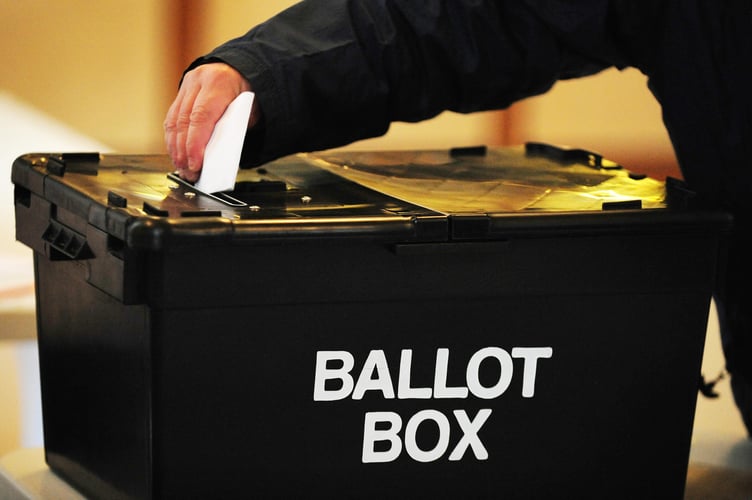Dozens of people in St Ives did not return to vote after being turned away at the polling station at the recent general election, figures show.
Since May 2023, voters have needed to show photo ID to vote in UK parliamentary elections, and for local elections and referendums in England.
The move has proved controversial, with some groups saying it may make voting harder for younger people and ethnic minorities, who are less likely to have a valid form of photo ID.
New figures from the Electoral Commission show 92 voters were initially turned away from polling stations in St Ives due to ID rules in the general election this July.
While 60 of these returned to vote, 32 did not.
The organisation cautions the true number may be higher than this, as some voters may have been told about the ID requirement by staff before they asked for a ballot, and therefore would not have been recorded as being turned away.
In total, 35,655 people voted at 73 polling stations in St Ives.
Across Great Britain 50,000 people were initially turned away due to not having valid ID, with 16,000 people not returning to vote.
However, some polling stations did not submit data on the number of people unable to vote, so the true figure may be higher.
While this was a small proportion of the nearly 20 million people who voted at polling stations, the Electoral Commission warned some may have been put off voting by the new rules.
Electoral Commission chief executive Vijay Rangarajan said: "This was the first time all voters across the UK were required to show photographic ID at a general election, and the data shows almost everyone was able to do so successfully.
"However, our research shows that the need for ID discouraged some people from voting – and we don’t want to see any voters lose their say."
Polling for the organisation suggests 71% of 18 to 24-year-olds are aware of the rules, compared to 91% for those aged 45 and over.
In addition, 76% of people from ethnic minority communities were aware of the rules compared to 90% of white people.
Mr Rangarajan continued: "Public awareness of the need for voter ID is high across the UK, but there are still groups of voters that are less likely to be aware of the need to show ID or that do not have an accepted form.
"Everyone eligible should have the opportunity to vote, which is why we are recommending changes that will support those who do not currently have ID and improve the accessibility of elections, while maintaining the security of the process."
Electoral Commission data shows in the constituency of Hendon in north London, 34 voters were recorded as not returning to vote after being turned away for having incorrect ID – more than the eventual margin of victory for Labour’s David Pinto-Duschinsky, who won the seat by just 15 votes.
Hendon is the only seat where the number of potential voters who failed to return to a polling station is greater than the winning candidate’s majority, though in other constituencies the figures were close.
The Labour party's election manifesto committed to "addressing the inconsistencies in voter ID rules that prevent legitimate voters from voting".
The Electoral Commission has called for the Government to review whether a larger number of ID documents could be valid for use in elections – such as the Jobcentre Plus Travel Discount Card and the 18+ Student Oyster photocard, in addition to the Veteran Card.

